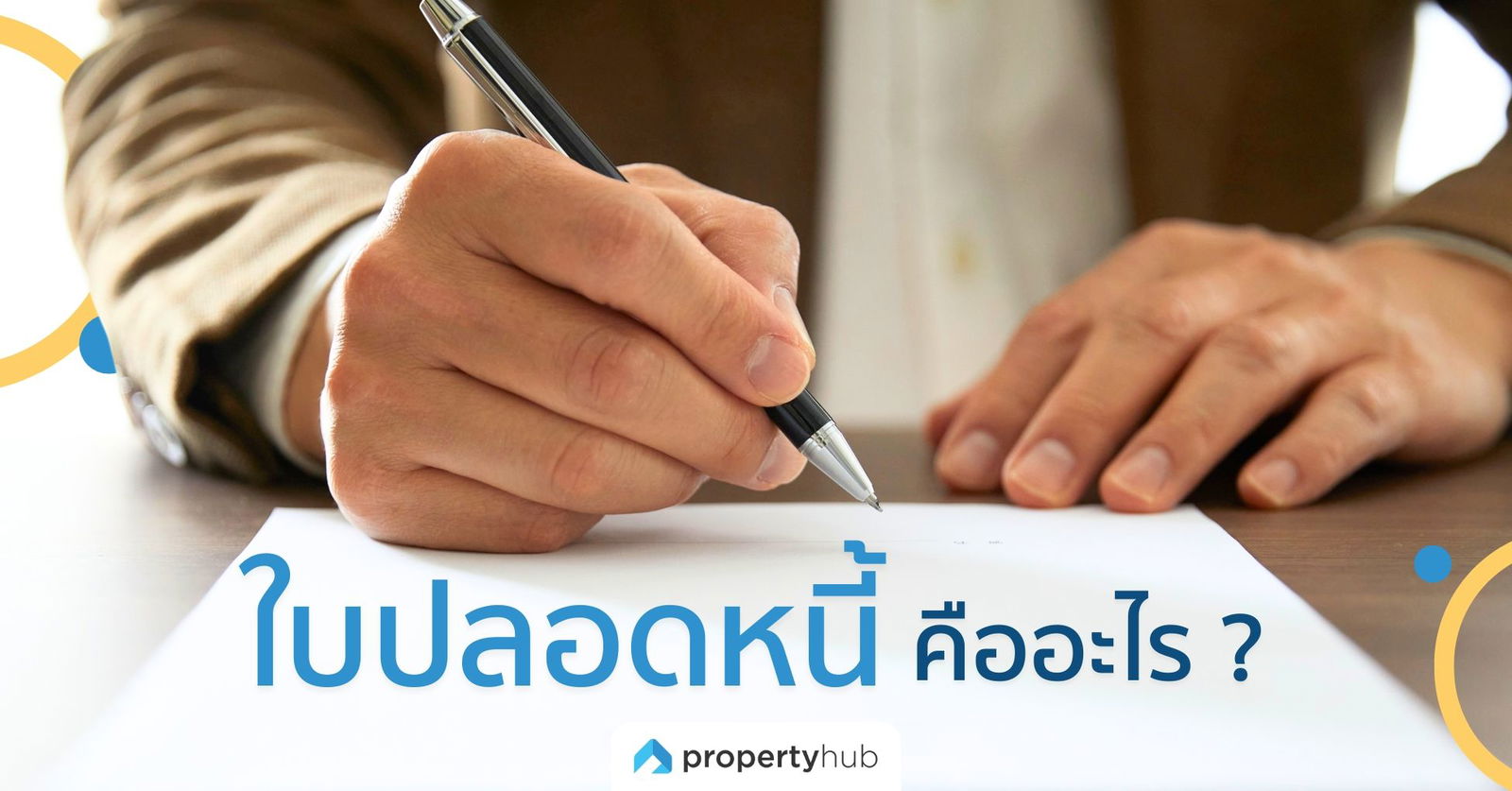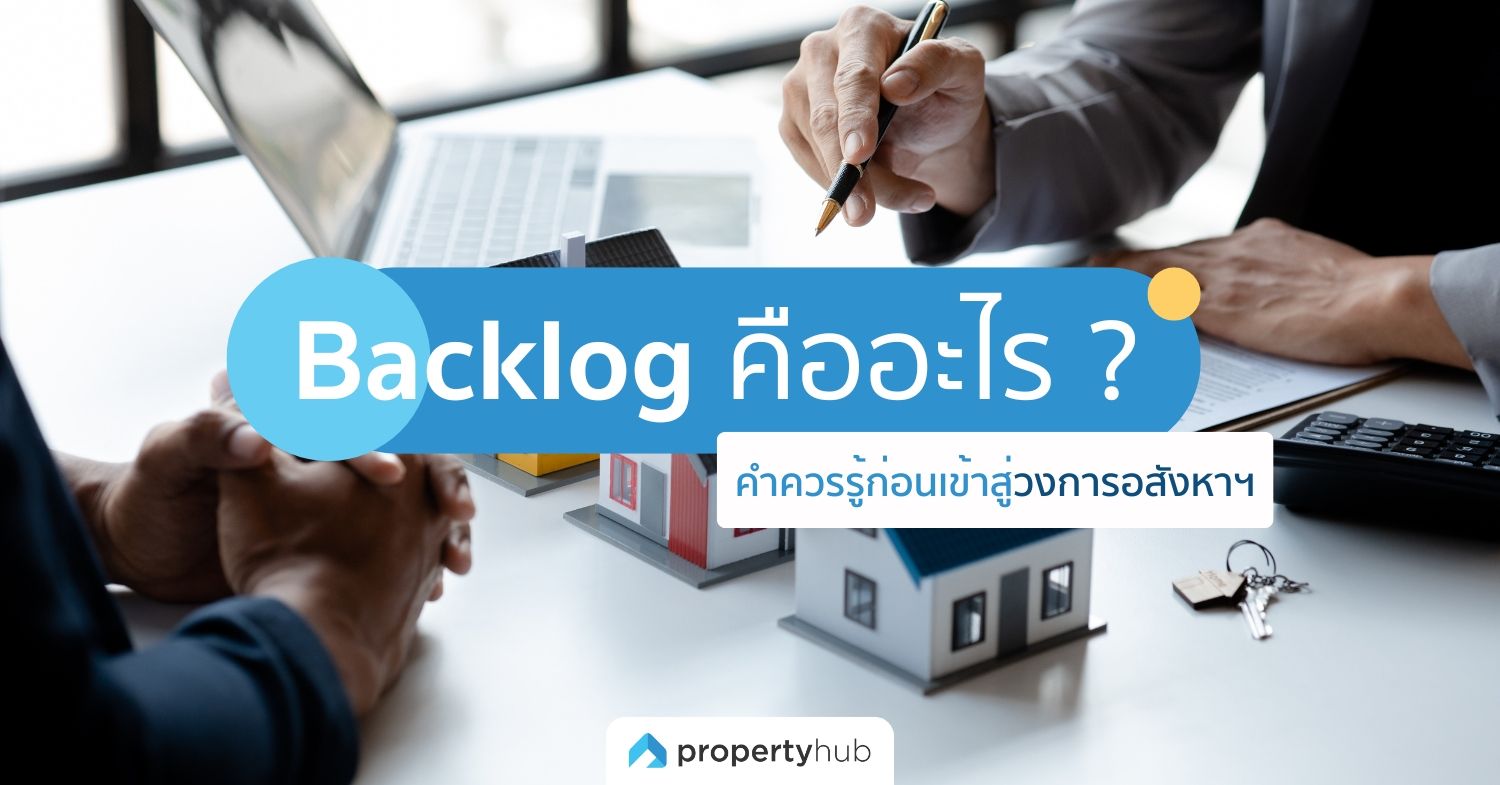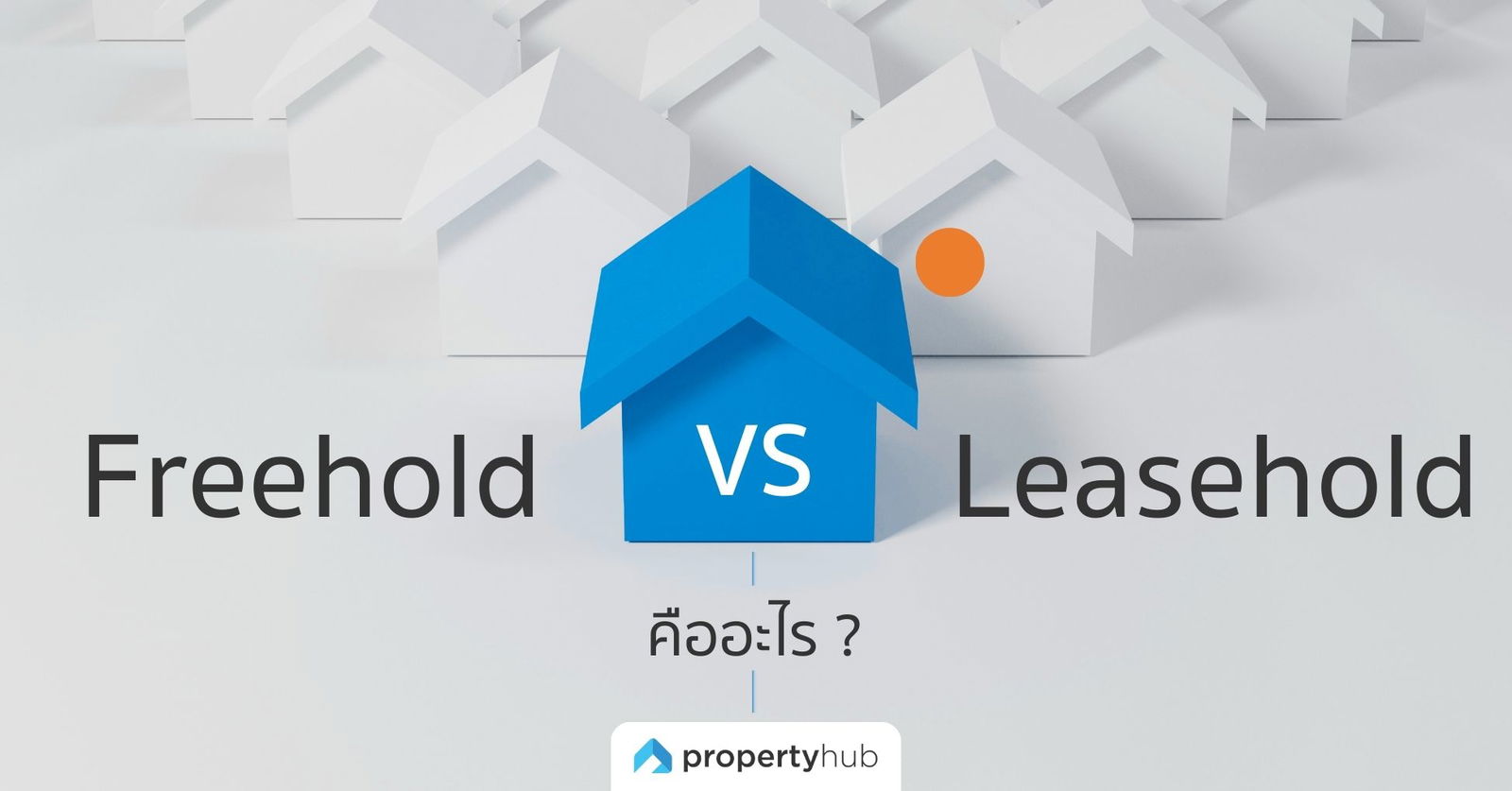
ใบปลอดหนี้ คืออะไร ? เอกสารสำคัญที่ต้องมี ก่อนตัดสินใจซื้อบ้าน/คอนโด
ใบปลอดหนี้ คืออะไร ? รู้จักเอกสารสำคัญที่ต้องมี ก่อนซื้อบ้านหรือคอนโด ช่วยยืนยันว่าไม่มีหนี้ค้างคา ลดความเสี่ยงและเพิ่มความมั่นใจก่อนโอนกรรมสิทธิ์
โพสต์เมื่อ10 February 2026

Thailand has long been a popular destination for foreigners, whether for tourism, business, retirement, or long-term living. With its unique charm, many foreigners are interested in buying houses, condominiums, or other types of real estate in Thailand. However, Thailand's laws limit the rights of foreigners in property ownership, so it's essential to understand the legal framework before proceeding. This guide covers all the key details foreigners need to know when buying property in Thailand.
Yes, but with restrictions depending on the type of property.
While foreigners generally cannot own land directly but there are some exceptions as follow:
Foreigners can hold property in Thailand under two main types: Freehold and Leasehold, which own distinct characteristics:
Freehold means complete and permanent ownership of the property under Thai law. Foreigners who purchase property as freehold are legally recognized as full owners, with no time limit on their ownership. It is the most secure form of ownership available.
Key Conditions:
Leasehold refers to leasing a property rather than owning it. Foreigners may enter into lease agreements with property owners (typically Thai individuals or Thai companies) for a maximum of 30 years under Thai law, with the option to renew twice for another 30 years each, totaling 90 years.
Limitations and Cautions:
When purchasing real estate in Thailand as a foreigner, it's essential to consider long-term living. A good property investment should align with your lifestyle including personal preferences, ease of travel, access to amenities, and even future investment potential. Below are some key principles to help guide your property purchase in Thailand.
*** Don’t just look at the present—consider the future potential of the area (development plans, growth, rising property value). ***
Today, you don’t have to physically travel to search for property like in the past. You can browse real estate listings online via websites like Propertyhub, which gathers a wide range of sale/rent listings across Thailand. It’s offer easily to explore with include many options properties: condos, houses, land, and others. Once you find a property you’re interested in, appointment a visit with the owner or agent before making your final decision.
All these considerations will help you find a property that truly matches your needs and lifestyle in Thailand.
1. Reservation Deposit
Once you’ve found a condominium you prefer, the first step is to make a reservation deposit. Typically, foreigners are required to pay between THB 50,000 to 200,000, depending on the price of the condo. This deposit serves as a confirmation of your intent to purchase the unit.
2. Making Sales and Purchase Agreement
Next, you will sign a Sales and Purchase Agreement, which outlines all the details of the property, including the full purchase price. If the payment involves installments or a down payment plan, the terms will be clearly stated in this contract.
3. Preparing for Ownership Transfer
When it’s time to transfer ownership, you should ensure that all payments are ready. Thus, coordinate with a financial institution. In cases where you cannot complete the transaction in person, you may appoint an agent or the developer to act on your behalf at the Land Department through a Power of Attorney. It is recommended that all required documents be prepared in Thailand beforehand.
4. For Individuals Unable to Travel to Thailand
For foreigners who are unable to travel to Thailand, you can authenticate your documents by having them notarized by a Notary Public at a Thai embassy or consulate in your country. Once notarized, send the documents back to your agent or developer in Thailand to proceed with the transfer of ownership.
5. Receiving Ownership Documents
The final step, after the process is complete, the buyer will receive the official Condominium Unit Title Deed and Sales and Purchase Agreement from the Land Department. These documents serve as legal proof of full ownership of the condominium.
When a foreigner purchases a condominium in Thailand, all payments must be transferred from abroad and in foreign currency only. The details are as follows:
1. Deposit
The deposit can be paid via credit card or by international wire transfer from abroad.
2. Down Payments
Typically, the down payment amounts to around 20–30% of the total price. Each installment must be transferred from overseas and in a foreign currency.
3. Ownership Transfer Payment
Even though, a foreign buyer has sufficient funds in a Thai bank account, those funds cannot be used for the final payment. The payment for transferring ownership must come exclusively from an international transfer.
If the buyer already has sufficient funds abroad, the transfer can be done immediately. Alternatively, financing may be arranged through a bank or financial institution that offers loans to foreigners.
In purchasing a condominium in Thailand, beside sale price both the buyer and the seller are responsible for certain taxes and fees related to the ownership transfer. These expenses are typically divided between the two parties, though buyer’s responsible and expenses to be handled by the seller depending on the agreement. Below as a details:
1. Transfer Fee
This is a government fee applied when the ownership of a property is transferred. It is required regardless of whether the buyer is Thai or a foreigner.
The fee is calculated at 2% of either the official appraised value or the contract sale price (depending on the case). This cost is typically split between the buyer and the seller, but in many situations, the buyer bears most of the responsibility.
2. Stamp Duty Tax
Stamp duty is charged at 0.5% of either the appraised value or the sale price—whichever is higher. It is applicable only when Specific Business Tax (SBT) is not charged. In most cases where SBT applies, stamp duty is usually exempt.
1. Specific Business Tax (SBT)
This tax is imposed if the seller transfers the property within 5 years of acquiring it. The rate is 3.3% of either the appraised value or the registered sale price, whichever is higher.
2. Withholding Tax
This tax is calculated based on the seller’s income:
Before purchasing a condo in Thailand, make sure to obviously discuss and agree on who will be responsible for each fee and tax, as in some cases, one party may agree to cover all the associated costs. This avoids any misunderstandings later.
Buying a condominium in Thailand as a foreigner is not difficult — if you understand the rules and follow the correct procedures. From making a reservation deposit, signing the purchase agreement, and completing the ownership transfer, to understanding the related taxes and fees, each step is straightforward with the right knowledge. The key is to prepare all necessary documents, transfer funds through legally approved channels, and seek guidance from professionals, whether it be a lawyer, real estate agent, or property developer.
You can also easily for condominiums, houses, land, or any type of real estate to buy or rent in Thailand at Propertyhub – the best Thailand property marketplace for condos, homes, and land. Create your free listing now!


ใบปลอดหนี้ คืออะไร ? รู้จักเอกสารสำคัญที่ต้องมี ก่อนซื้อบ้านหรือคอนโด ช่วยยืนยันว่าไม่มีหนี้ค้างคา ลดความเสี่ยงและเพิ่มความมั่นใจก่อนโอนกรรมสิทธิ์
โพสต์เมื่อ10 February 2026
Backlog คืออะไร ? ทำความรู้จักคำศัพท์อสังหาริมทรัพย์ที่นักลงทุนควรรู้ เข้าใจความหมายของ Backlog และความสำคัญก่อนตัดสินใจซื้อบ้านหรือคอนโด
โพสต์เมื่อ27 January 2026
Freehold vs Leasehold คืออะไร ? ทำความเข้าใจความแตกต่างของการถือครองอสังหาริมทรัพย์ เหมาะกับนักลงทุนมือใหม่ วิเคราะห์ข้อดี–ข้อควรรู้ของ Freehold และ Leasehold ก่อนตัดสินใจลงทุน
โพสต์เมื่อ21 January 2026
แนะนำ 6 วิธีเก็บเงินซื้อบ้าน/ซื้อคอนโดสำหรับ First Jobber วางแผนการเงินอย่างเป็นระบบ สร้างวินัยการออม ลดหนี้ เพิ่มรายได้เสริม พร้อมเทคนิคเตรียมตัวก่อนกู้ธนาคาร ช่วยให้การซื้อคอนโดหรือซื้อบ้านหลังแรกเป็นเรื่องที่ทำได้จริง
โพสต์เมื่อ29 December 2025
สำหรับใครที่กำลังจะไปทำเรื่อง “ขอเปลี่ยนชื่อผู้ใช้ไฟฟ้า” บทความนี้ก็คงจะเป็นประโยชน์กับคุณอย่างแน่นอน เพราะว่าเราได้รวบรวมขั้นตอนการยื่นเรื่องขอเปลี่ยนชื่อผู้ใช้ไฟฟ้า พร้อมกับลิสต์รายชื่อเอกสารที่คุณจะต้องจัดเตรียมมาฝาก
โพสต์เมื่อ21 August 2025
ปัจจุบันนี้คุณสามารถเช็คราคาประเมินคอนโดทางออนไลน์ได้แล้ว และที่สำคัญเลยก็คือใช้งานง่าย เช็คราคาประเมินได้ตลอด 24 ชั่วโมง โดยที่ไม่ต้องเสียเวลาและค่าเดินทางไปยังกรมที่ดิน เพราะฉะนั้นทางทีมงาน Propertyhub จึงจะขอนำวิธีตรวจสอบ “ราคาประเมินคอนโดออนไลน์” มาฝาก
โพสต์เมื่อ16 October 2025
ในการซื้ออสังหาริมทรัพย์อย่างคอนโดนั้น นอกเหนือจากราคาขายคอนโดแล้ว สิ่งที่ต้องทราบนอกเหนือจากนี้ก็คือเรื่องของ ขั้นตอนต่างๆ ที่ผู้ซื้อทุกรายจะต้องทำความเข้าใจ เพราะไม่ว่าจะเป็นการ ซื้อคอนโด มือหนึ่งจากผู้พัฒนาโครงการ หรือการซื้อคอนโดมือสองต่อจากผู้เป็นเจ้าของก็ตาม ขั้นตอนของการ โอนคอนโด คือเรื่องที่จะสร้างความปวดหัวไม่น้อยสำหรับใครที่ไม่เคยทำความเข้าใจมาก่อน
โพสต์เมื่อ29 August 2025